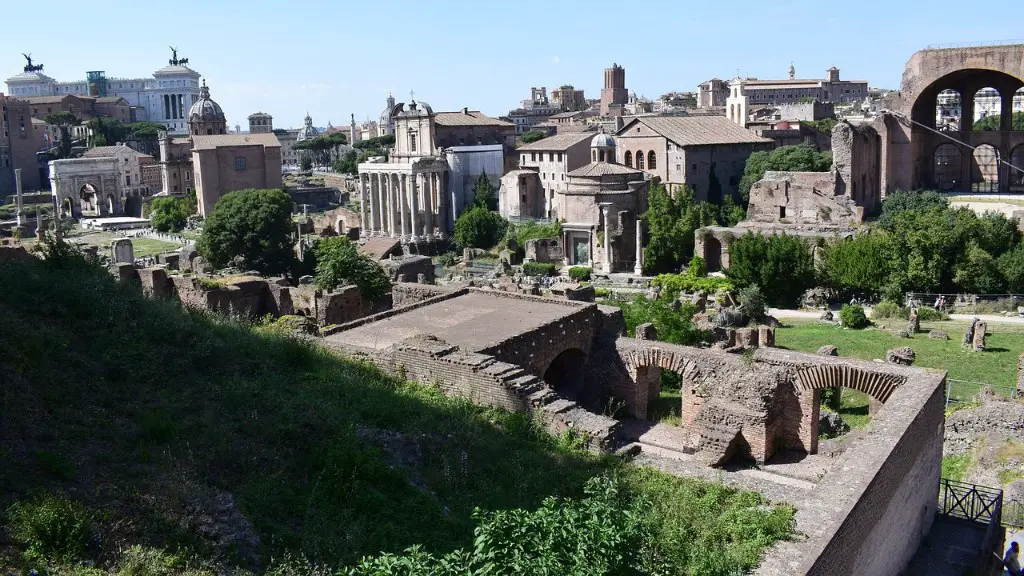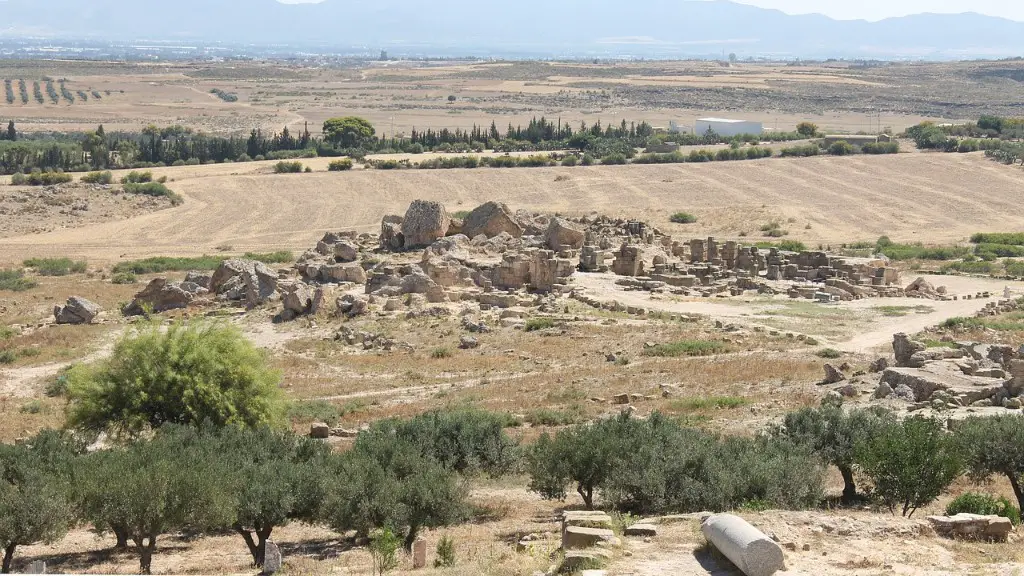Social Impact of Slavery
In ancient Rome, the percentage of the population that were slaves was estimated to be between 25 and 40%. Slavery was commonplace and seen as an accepted form of labor by both the Roman government and its citizens. Slavery was a crucial aspect of the Roman economy and its impact extended far beyond the enslavement of individuals.
Slave labor provided the Roman upper classes with access to cheap labor. This enabled them to amass great wealth while exploiting the rights and freedoms of their slaves. This resulted in a massive disparity in wealth between the upper classes and those who were enslaved.
Slaves were often used in the most dangerous occupations in the Roman Empire such as mining, agriculture and housekeeping. They were not afforded any human rights and could be worked to death by their owners if they displeased them in any way or simply refused to comply. Slaves also had to live in poor conditions, often with inadequate food and water.
Furthermore, slavery also had psychological and cultural repercussions for slaves, as it stripped them of their agency and autonomy. Slaves had no legal recourse and were unable to seek justice in the Roman courts. This had a significant impact on how slaves viewed their place in the world and their ability to fight for their freedom.
Political Implications of Slavery
Along with its social implications, slavery also had political consequences. Slaves had no say in the government and thus, were excluded from the political process. This relegated them to second class citizens with no representation or power in the government.
The wealthy Roman upper classes also benefited from this. They had a vested interest in keeping slaves oppressed and powerless so as to maintain their own wealth and power. This kept the entire Roman economy dependent on slavery which perpetuated a cycle of exploitation.
Moreover, slavery also had international implications. The Roman Empire had extensive trading ties with other countries and communities and were actively involved in the slave trade. This meant the Roman Empire was part of an international economy which relied heavily on slave labor, often exploiting other countries and people for their own gain.
Historical Precedent of Slavery
The use of slaves in ancient Rome was by no means a new phenomenon. Slavery was present in all forms of ancient civilizations, stretching back to the Egyptians, Babylonians and Greeks. Slavery was seen as a way to acquire cheap labor and it was not uncommon for successful military campaigns to see the enslavement of conquered people.
The Romans were no different in this regard. They used slaves to supplement their military campaigns, creating an efficient form of labor that was easy to control and manage. This enabled them to increase their wealth and power and expand their empire.
Legacy of Slavery in Ancient Rome
Although slavery was abolished in the Roman Empire centuries ago, its legacy has continued to this day. Slavery left behind a system of oppression and exploitation embedded in society. It also had a significant psychological impact on slaves who were stripped of their freedom and autonomy.
Moreover, the legacy of the slave trade continues today, with millions of people across the world still living in conditions of slavery and exploitation. This shows the devastating and long lasting effects of slavery and a reminder of how even a powerful civilization like the Roman Empire could still be complicit in such an abhorrent practice.
Cultural Representations of Slavery
The legacy of slavery in ancient Rome has been documented in various forms of media. Movies such as Spartacus, Ben-Hur and Gladiator have used slavery as a central theme and provided insight into the experiences of slaves in the Roman Empire.
In addition, works of literature such as Virgil’s Aeneid and Homer’s Illiad have also explored the issue of slavery in a variety of ways. This highlights the importance of understanding the history and legacy of slavery in order to be able to properly address the issue in the present day.
The Role of the Church in Abolishing Slavery
The Church played an important role in the abolition of slavery in the Roman Empire. Martin Luther and other reformers argued that slavery was a violation of natural law and a violation of Christian ethics. Pressure from religious leaders eventually led to the end of the slave trade and its gradual decline in the Roman Empire.
Furthermore, the Christian Church also provided an important platform for resistance and emancipation. Slaves used the church as a refuge and sought refuge from unjust laws and practices. Through their missionary efforts, the church was instrumental in the spread of Christianity, a religion that held human dignity and equality as its core values.
Protection for Former Slaves
Slavery was eventually abolished in the Roman Empire and many of the former slaves were granted some form of protection. They were given certain rights such as the right to own property, create businesses and marry. This granted them a greater level of autonomy and agency.
In addition, former slaves were also provided with protection from exploitation as laws were put in place to prevent them from being re-enslaved or exploited. This was an important step towards ensuring that the legacy of slavery did not continue beyond the Roman Empire.
Role of Education in Ending Slavery
Education was another important tool in the fight against slavery. Slaves were often denied access to formal education, making it difficult for them to gain employment or other opportunities. Education provided former slaves with the tools they needed to break free from the oppressive bonds of slavery and pursue a better life.
In addition, education also equipped former slaves with the knowledge and resources they needed to resist oppression and exploitation. Through education, former slaves were able to spread the idea of freedom, justice and equality to their peers, creating a ripple effect that eventually helped to bring about an end to slavery in the Roman Empire.


